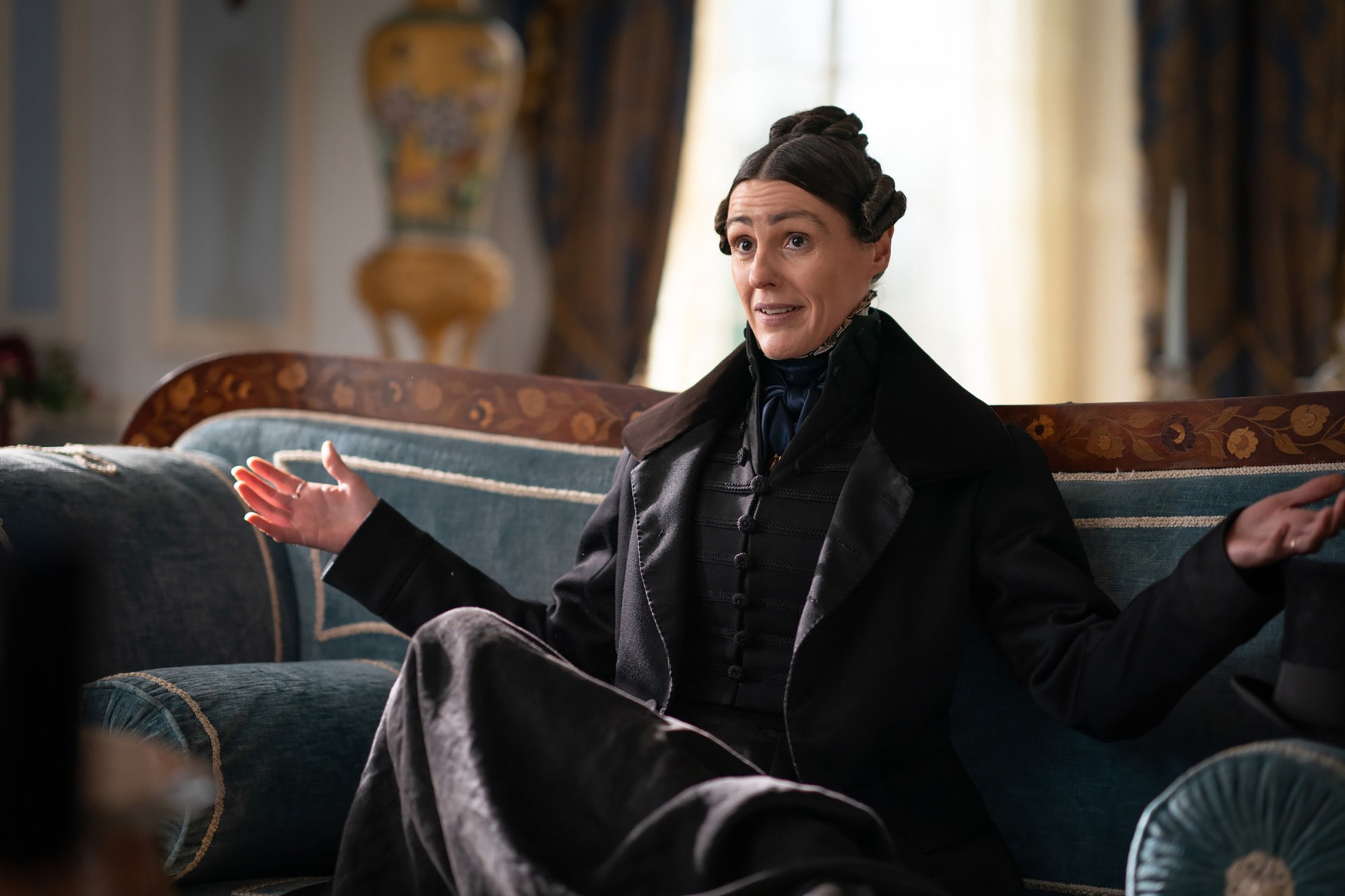
- Television
“Gentleman Jack”: the First Gay Marriage – 1834
Gentleman Jack, the British series created by Sally Wainwright, is about the true-life story of Anne Lister (Suranne Jones), born in 1791, a landowner and entrepreneur in Halifax, West Yorkshire. Her historic home, Shibden Hall, is still standing and her extensive diaries, deciphered by her relative John Lister decades after her death, but kept hidden, because a portion of them, written in a secret code, described intimate details of her numerous lesbian relationships, were finally published in two volumes in 1988 and 1992.
These books have become required reading for students of gender studies in UK universities. The TV series was inspired by the 1998 book by Jill Liddington, Female Fortune: Land, Gender and Authority, The Anne Lister Diaries and Other writings.
After the first season of Gentleman Jack aired on BBC and HBO in 2019, covering the period from 1832 to 1834, the shooting of the second season was delayed by the COVID-19 pandemic, so it aired in the spring of 2022, but it did not bring the story of this groundbreaking woman to a conclusion, and fans are now clamoring for a third season.
In Season One, Lister, who had been hurt when her lover, Mariana Lawton (Lydia Leonard), was forced by her family to marry a wealthy older gentleman, made her purpose clear: “I was born like this, why should I compromise myself? I intend to live with someone I love and who loves me.”
Season Two starts after Anne Lister has persuaded 30-year-old heiress Ann Walker (Sophie Rundle) to commit to their love relationship, with the couple exchanging rings and taking Communion on Easter Sunday 1834 at Holiday Trinity Anglican Church in York, in what is considered the first gay marriage, nearly two centuries before it became legal in the UK in 2014.
An experienced traveler, Anne whisks her bride on a dazzling honeymoon in Paris and the Swiss Alps, before they settle into living together at Shibden Hall, with Anne’s aunt (Gemma Jones), her father Jeremy (Timothy West) and younger sister Marian (Gemma Whelan). The two women are sleeping in the same bed upstairs in a cozy suite with a fireplace, breakfast nook and sitting room. This is where this pioneering, highly educated woman, unafraid of defying convention with what her critics define as an “unusual arrangement,” retreats to find affection and sex after spending the whole day, as Lister says, “dealing with tiresome, inarticulate men.”
Often sporting black manly outfits, walking at a brisk pace, and speaking in a decisive tone, Lister runs her estate and coal mining business, starts the building of a hotel by borrowing money to finance her investments, defends the transport of goods by boat via canals, a system threatened by the arrival of the railroad, and gets involved in local politics, supporting the conservative Tories in the 1835 election. When their “blue” (Conservative) candidate, James Wortley, wins by one vote a seat in Parliament, defeating the Radical candidate, Edward Protheroe, riots explode in Halifax, with angry “yellows” (Liberals) smashing shop windows, entering landowners’ homes, destroying property and burning carriages. John Waterhouse (Nicholas Farrell), Chairman of the canals’ shareholders committee, comments to Lister, “I had no idea there was such anger. Have we been blind not to see it?” And wonders if this violent behavior might be caused by hunger and poverty during a bitter winter.
Anne Lister’s proactive management of her business interests inspires the insecure Ann Walker to gain confidence in herself and insist to her older sister Elizabeth (Katherine Kelly) on the division of the estate left to them by their father, despite the vicious objections of her brother-in-law, Captain Sutherland (Derek Ridell), who accuses Lister of being a fortune hunter and labels her influence on his sister-in-law as “unnatural.”
The life dramas of the servant class – housekeepers, cooks, maids, footmen, gardeners – are also explored in Gentleman Jack, as are evictions of tenants for non-payment of rent.
All these historical aspects that resonate with present-day issues are addressed in the TV series based on Anne Lister’s diaries and offer an invaluable insight into the social life of Northern England in the 19th century.
In the Behind the Scenes interviews on the HBO website, Suranne Jones says: “Anne Lister is a force of nature: she is a businesswoman, a diarist, an entrepreneur, a traveler, and she has a wife. What’s beautiful about Season Two is that it looks very carefully at a secret same-sex marriage, the societal influences and the dangers that that brings up. It’s a very human relationship that will speak to any couple anywhere. Anne had to be tough to break through these gender barriers – she is inspirational because she was so far ahead of her time. She is a real example of pushing yourself to your limits in this life because you’ve only got one of them.”
The title Gentleman Jack, a derogatory nickname given to Anne Lister behind her back because of her masculine behavior, is taken from the song composed and recorded in 2012 by the singer-songwriter duo from Yorkshire, Heidi Tidow and Belinda O’Hooley, that plays over the end credits of each episode. These two lesbian musicians have been married since 2016, and are raising a son, Flynn, born in 2019.
Lister and Walker’s having children as a same sex couple was something that Anne Lister believed was beyond their reach in 1835; she angrily and tearfully reacts when her wife Ann Walker says that somehow she had imagined being a mother without being with a man: “It is a great sadness that we can never have children. That’s something that I can never give you.”
Thankfully today LGBTQ people can and do raise children in many different types of families.

